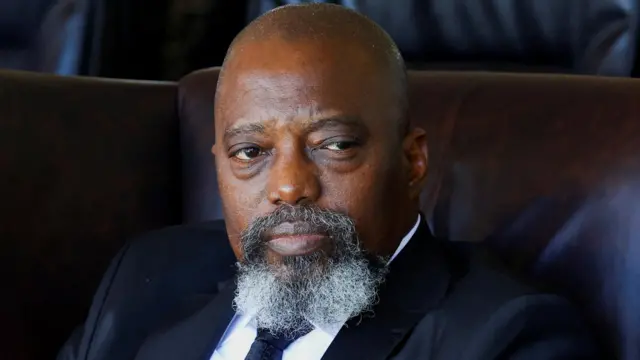
Former DRC president, Kabila on trial
The treason trial of Joseph Kabila, the former president of the Democratic Republic of Congo (DRC), commenced on Friday in a military court in Kinshasa. Kabila who ruled the country for 18 years is facing serious charges including treason, murder and rape linked to his alleged support for the M23 rebel group that controls a significant portion of eastern DRC’s mineral-rich territory.
Kabila who has denied all charges did not attend the hearing and has requested to be tried in absentia. The ex-president’s legal team argued that the case is “arbitrary,” accusing the courts of being used as an “instrument of oppression.” The trial was adjourned after several hours to the end of the month following a prosecutor’s request for additional time to review documents.
President Félix Tshisekedi who succeeded Kabila has publicly accused his predecessor of masterminding rebel activities including supporting the M23 rebels. Meanwhile Kabila’s supporters have dismissed the charges as politically motivated with some claiming the trial is aimed at sidelining him from the country’s political landscape.
Kabila who returned to the rebel-held city of Goma in eastern DRC from self-imposed exile in South Africa in May faces a complex web of allegations. He is accused of conspiring with Rwanda to undermine Tshisekedi’s government—a charge both nations deny with Kigali asserting it is acting to prevent spillover of conflict into Rwandan territory.
In a significant development, Kabila’s parliamentary immunity was revoked in May after fellow senators stripped it enabling his prosecution on charges including torture, insurrection and the forcible occupation of Goma. The court’s charge sheet describes him as a “key initiator” of the Congo River Alliance, a rebel coalition including the M23 and other militias.
The former leader’s political influence remains a contentious issue. Critics including allies of Kabila such as Ferdinand Kambere and Emmanuel Ramazani Shadary have accused the government of double standards and political persecution. Shadary dismissed the trial as “theatre,” asserting that a guilty verdict was inevitable.
As the trial unfolds, Congo’s Deputy Justice Minister Samuel Mbemba emphasized the independence of the judiciary, stating, “Justice does not negotiate, it does not join in dialogue. The calendar for justice is different from the political calendar.”
The trial marks a pivotal moment in the DRC’s ongoing efforts to address its complex history of conflict and political instability. The outcome remains uncertain but the proceedings have already sparked intense debate about justice, accountability, and political power in the country.
